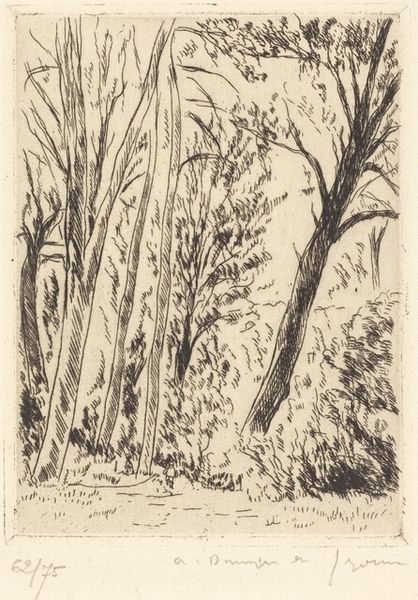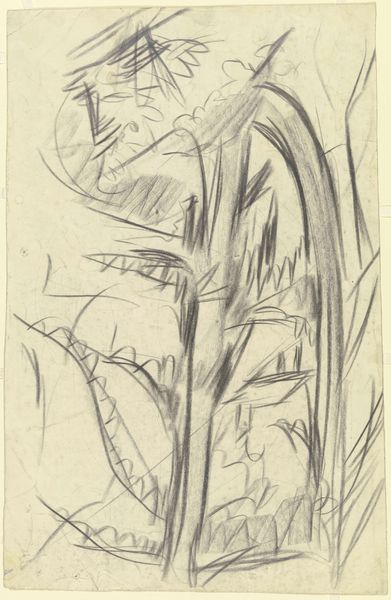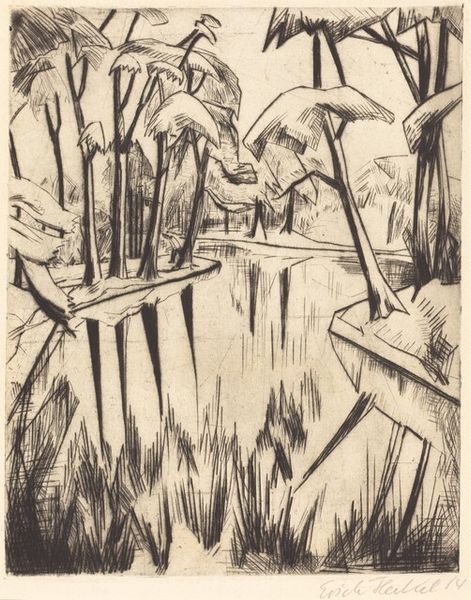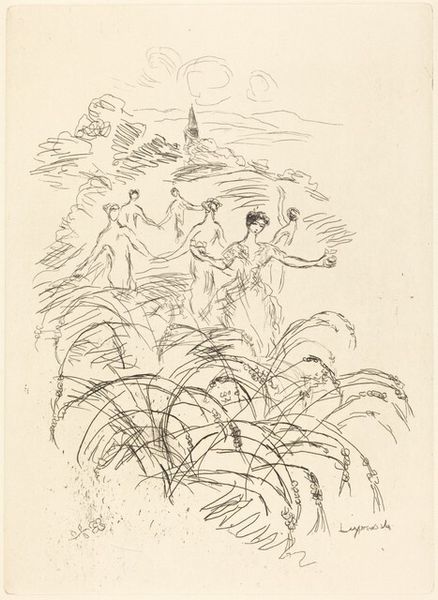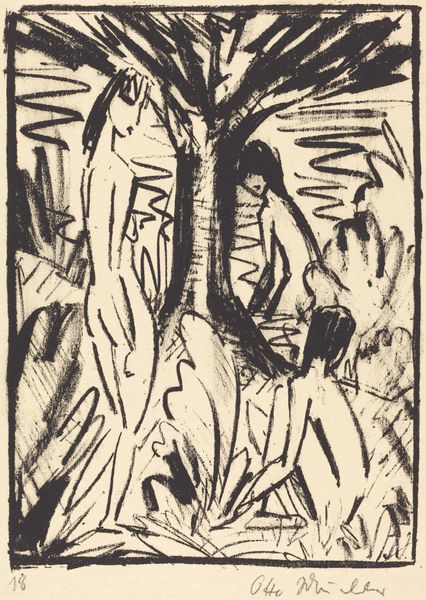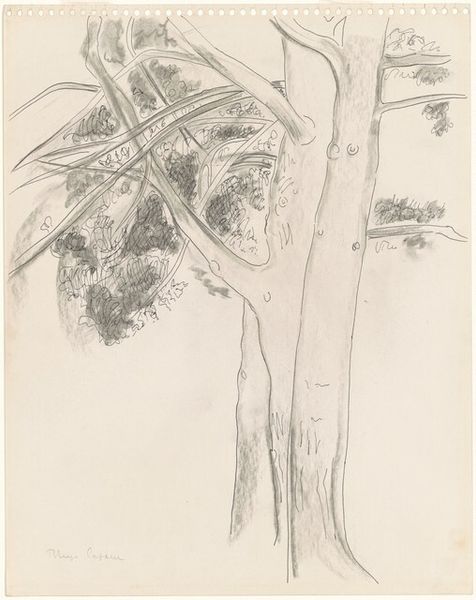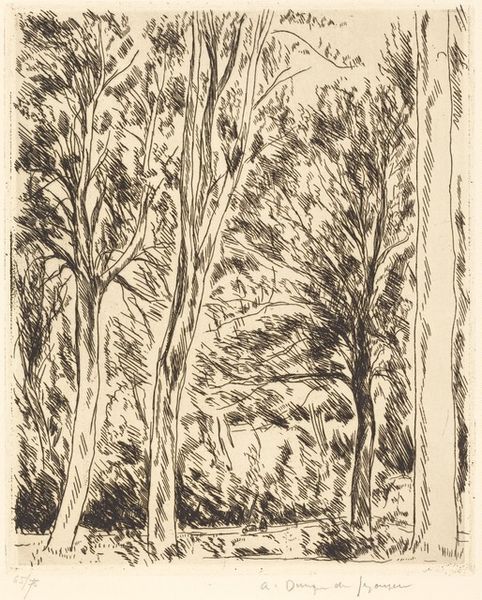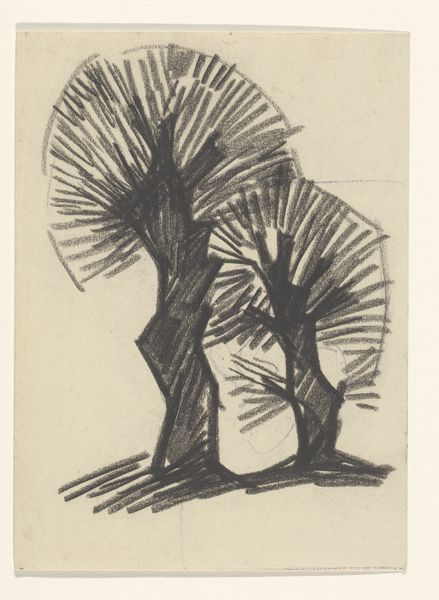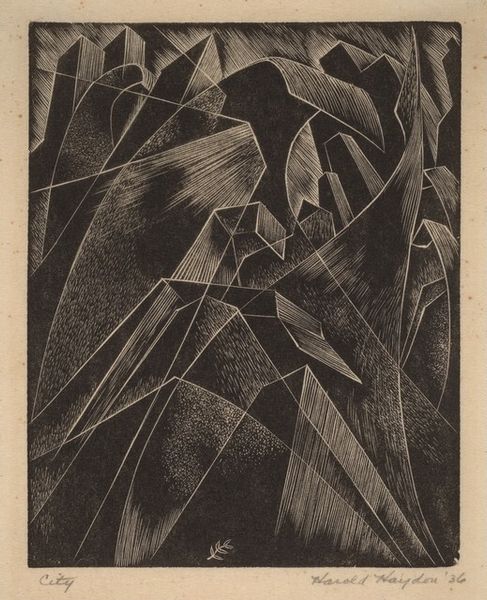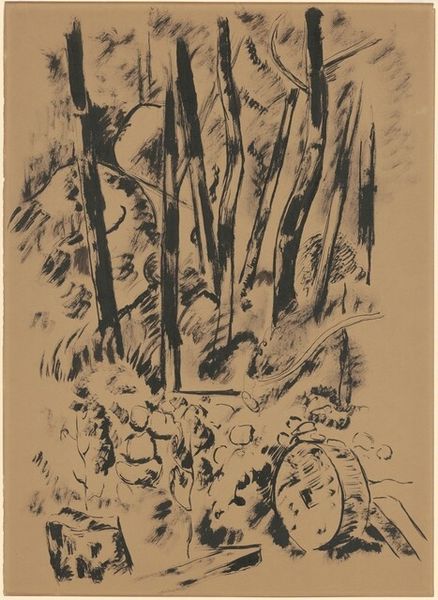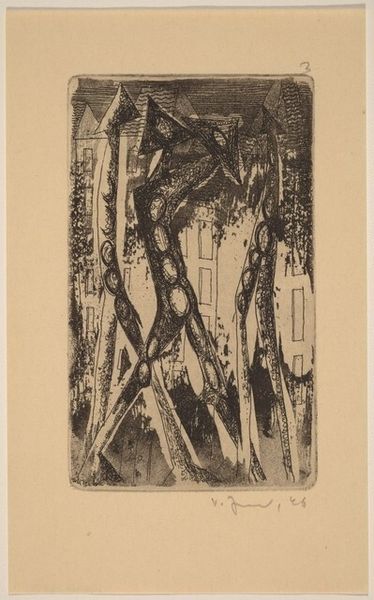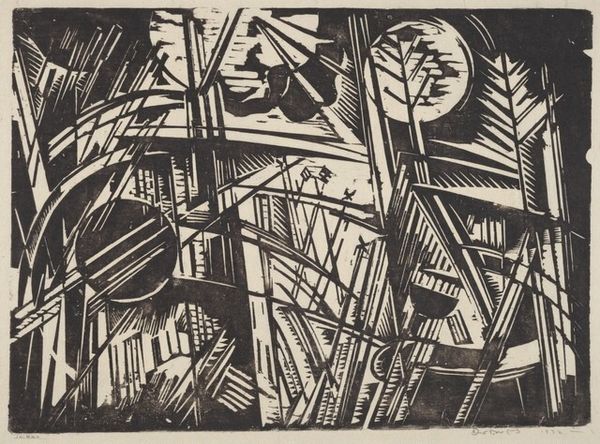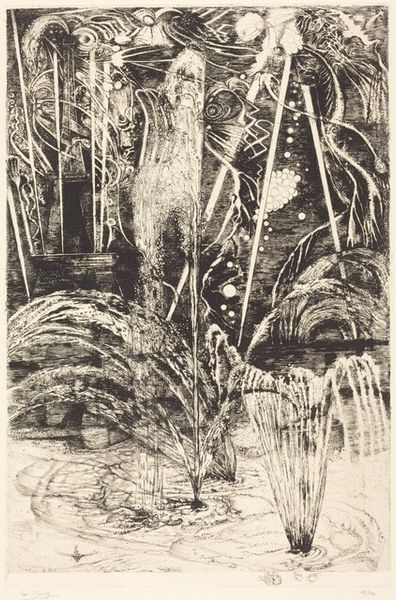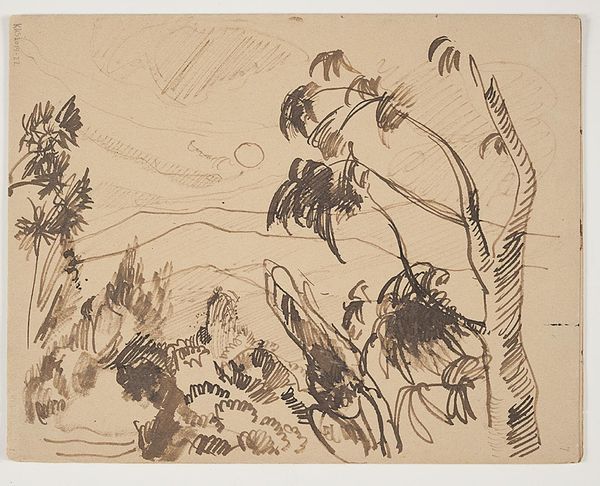
drawing, print, etching, ink
#
drawing
# print
#
etching
#
landscape
#
ink
#
geometric
#
abstraction
#
line
Copyright: National Gallery of Art: CC0 1.0
Editor: So, here we have Werner Drewes’ “Fern Trees II” from 1926, an etching in ink on paper. It’s a pretty striking image. The strong, almost geometric lines, give it a really dynamic, slightly unsettling feel. What's your interpretation? Curator: It's compelling because Drewes has really wrestled with the material qualities of etching itself. Look at the way the density of lines creates texture, almost mimicking the tactile nature of the leaves. The etching process, the very act of scratching into the metal, becomes a means of dissecting and reassembling the natural world. Consider how this meticulous labor relates to the increasing industrialization of the 1920s. Is Drewes perhaps reflecting a desire to maintain the hand-made amidst mass production? Editor: That’s fascinating! I hadn’t considered the industrial context. So, the abstraction, it’s not just about aesthetics, it’s about labor, about deconstructing something natural into these almost manufactured-looking lines? Curator: Exactly. Think about how the very act of recreating nature through this mechanical process changes our perception of it. Does it celebrate nature, or dissect and dominate it? Also, notice the varying weights and directions of the lines – that represents labour decisions during the etching process. Each intentional choice affects not just visual structure, but meaning as well. What happens to our traditional notion of "landscape" in this context? Editor: It becomes… something else. Something less romantic, maybe more critical. Almost a manufactured landscape rather than a found one. Curator: Precisely! The means of production fundamentally alters the content. We see the forest not as an untouched entity, but as a processed object. Editor: I’m seeing it so differently now. I initially just saw the abstraction. Curator: It's the materiality that unlocks its deeper meaning. Appreciating art as made with particular materials can unlock greater historical understanding. Editor: Absolutely! Thinking about the labor and the production, that really changes how I'll approach other works now. Thanks!
Comments
No comments
Be the first to comment and join the conversation on the ultimate creative platform.
